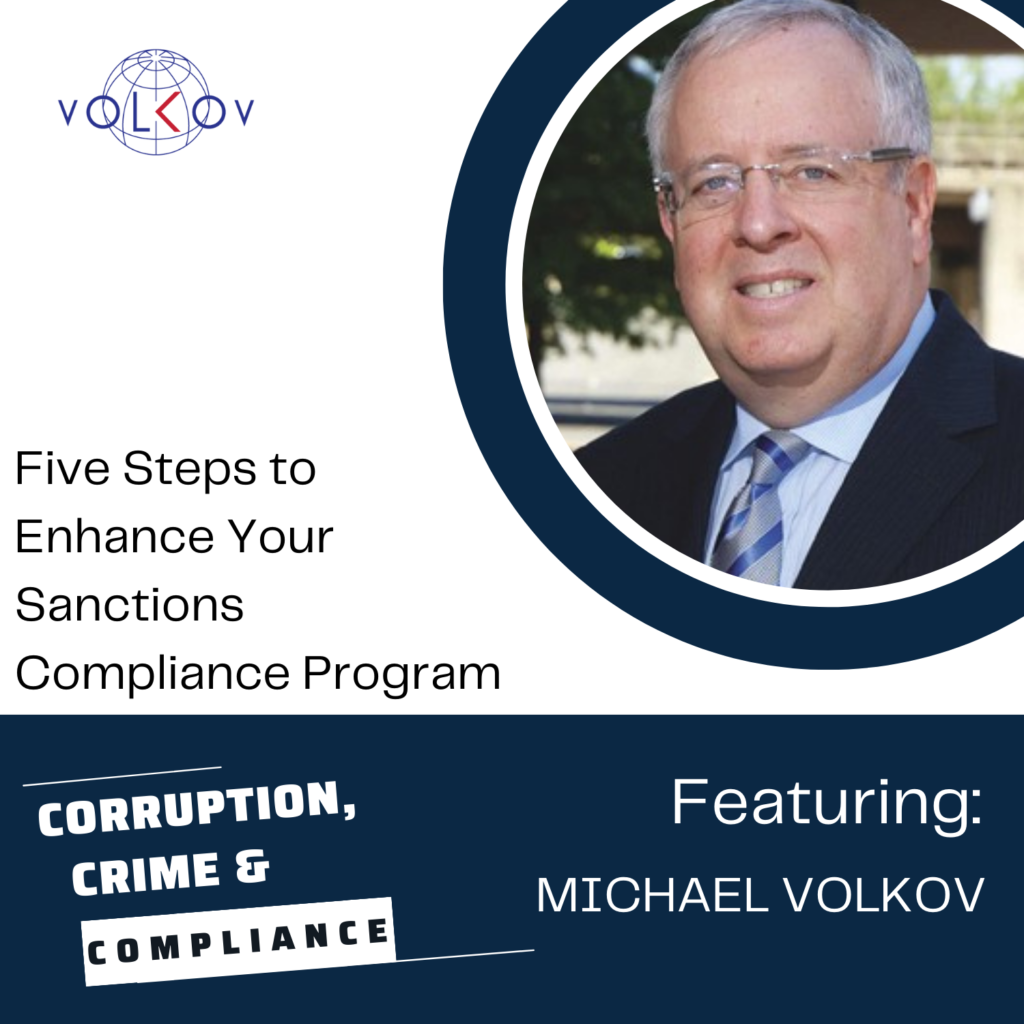
Is your business prepared to effectively manage and mitigate the risks associated with sanctions compliance in today’s global economic landscape? In today’s increasingly interconnected global economy, sanctions compliance is more critical than ever. Companies around the world face complex regulatory environments and unprecedented risks, requiring a comprehensive and proactive approach to sanctions compliance. In this episode of Corruption, Crime and Compliance, Michael Volkov explores the pressing need to elevate corporate sanctions compliance programs, as well as the renewed focus on enforcement by the Department of Justice, and the practical steps every company must take to meet these evolving challenges head-on.
You’ll hear Michael talk about:
- Companies must enhance their sanctions compliance programs. Basic programs that simply rely on screening tools are no longer sufficient. Companies need to incorporate comprehensive measures to ensure compliance with evolving sanctions laws.
- The Department of Justice (DOJ) has escalated the enforcement of national security crimes, demonstrating a renewed focus on sanctions compliance. This shift necessitates a proactive response from companies to mitigate potential risks.
- The OFAC has outlined five crucial elements for an effective sanctions compliance program: management commitment, risk assessment, internal controls, testing and audit, and training. Companies should familiarize themselves with these elements and incorporate them into their existing compliance programs.
- Risk assessment is a crucial first step in compliance. Companies must review their operations holistically, assessing all touchpoints with international markets to identify potential vulnerabilities and risks.
- Geoblocking technology is a valuable tool in sanctions compliance. Working with IT departments to develop comprehensive geoblocking capabilities can help prevent interactions with prohibited individuals or entities.
- Thorough screening and due diligence processes are imperative, moving beyond just the results of screening tools. This ensures that companies identify and mitigate potential risks associated with sanctioned entities or countries.
- Companies must implement effective escalation controls to ensure that any red flags identified through screening or due diligence are properly addressed and resolved.
- End-user verifications and documentation are critical components of a robust sanctions compliance program. These procedures help ensure that the company’s products or services are not being used by sanctioned entities.
- Annual training for employees and personnel is essential. Tailoring this training to the company’s specific risk profile ensures that all staff understand their responsibilities and the potential risks associated with non-compliance.
KEY QUOTES:
“Your company’s survival may depend on your ability to navigate sanctions compliance in an increasingly complex global economy.” – Michael Volkov
“It’s not just about checking boxes. We have to understand our touchpoints to the international markets and assess the potential risks. That’s the foundation of an effective compliance program.” – Michael Volkov
“Training isn’t a one-and-done task. It’s an ongoing commitment to ensure our personnel understand and can navigate the complex world of sanctions compliance.” – Michael Volkov
Resources:





